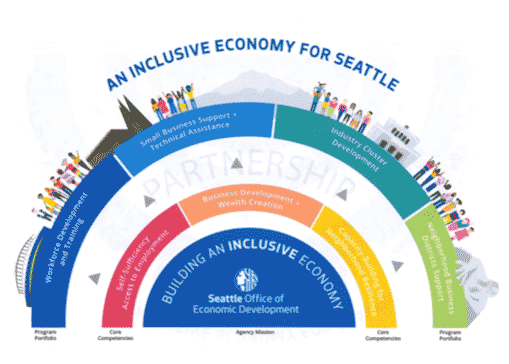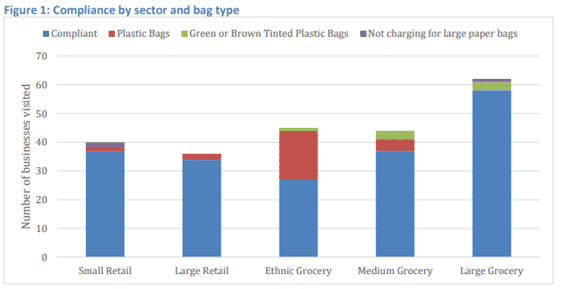Housing Bond and Eviction Reform Update; Business Stabilization Fund Pilot; DNDA Spotlight in the Seattle Times!; Bag Ban Report
Housing Bond and Eviction Reform Legislation Update
I’ve been advocating to use the City’s bonding capacity for affordable housing and services since taking office in 2015. In 2017, I sponsored legislation that authorized the City to issue $29 million in limited tax general obligation (LTGO) funding for building affordable housing—using the City’s line of credit which gets paid back through tax revenue over time. Over a dozen nonprofit developers indicated their interest to help bring over 2000 units of affordable housing online with this added funded capacity.
Since future tax revenue is necessary to pay off the debt, this authority is best used when connected to a revenue stream to pay the debt. The $29 million dollar bond issuance authorized by the Council in 2016 for housing will be paid off with revenue generated by the Short Term Rental tax.
House Bill 1406, passed in this year’s session of the Washington State Legislature, gives local cities and counties the opportunity to retain sales tax revenue that is already collected and would otherwise be given to the state for acquiring, rehabilitating, or building affordable housing. This means that the City of Seattle now has a dedicated revenue source to pay a our continued use of our bonding capacity and to help bring affordable housing online much more quickly. This added bonding capacity could also help leverage more state and federal dollars for our affordable housing. As I wrote a few weeks ago, the bill will go into effect next week, starting the clock on a 6-month timeline for the City to pass a Resolution stating the intent to use the new authority, and a year to pass an ordinance enacting the authority.
That said, given our affordable housing crisis we know we can’t drag our feet on this! I appreciate that Councilmember Mosqueda and the Mayor have also been diligently tracking this timeline, and I am excited for the opportunity to partner with them to find a way to double the City’s annual housing investments in each of the remaining four years of the Housing Levy and better reflect the projected County-wide need to adequately fund our homelessness intervention system identified in the 2018 McKinsey report.
Additionally, some much-needed reforms to our eviction system have also been made in the state legislature that aligned with my priorities to help people stay in their homes highlighted in the “Losing Home” report. Some of these changes were heard in my Committee this Tuesday in a bill that ‘harmonizes,’ i.e. aligns, City policy with new state requirements. Specifically, these changes are:
- Extend the 3-day pay-or-vacate notice for nonpayment of rent to 14 days—so tenants have time to access services, support, or the next paycheck to get caught up and avoid eviction;
- Define rent as “recurring and periodic charges identified in a rental agreement,” and clarifying that it be applied before other costs like late payments, damages, legal costs, or other fees. This provision is important to insure that landlords don’t use rent to pay for other costs and trigger a basis for an eviction.
- Extend the minimum notice to 60 days in advance for all rent increases (upon completion of a fixed-term or month-to-month rental agreement), replacing Seattle’s 60-day notice required for increases above 10%. This provision will provide tenants more time to anticipate and make plans in advance of a rent increase, as well as incentivize landlords to plan ahead.
These changes will help check off a few items from Resolution 31861 that I sponsored earlier this year to outline City Council’s efforts to codify the recommendations made in “Losing Home”.
I will be introducing two more bills this summer that will meet two more items from this Resolution: ensuring that survivors of domestic violence aren’t held liable for damages done by their abuser, and to prevent roommates and family members, oftentimes sources of financial support in a high-rent environment, from being denied housing or evicted. I’ll keep you updated as these bills advance.
Business Stabilization Fund Pilot
South Park community members identified the need for small business help at a May community walk with City of Seattle departments. This walk allowed the City to engage with communities to identify and address needs, including landscape maintenance on City-owned properties; replacing streetlights; removing graffiti; improving sign and pavement markings; and removing debris from illegal dumping. But also, this engagement helped lead the Office of Economic Development to launch a new Business Stabilization Fund Pilot program.
The need for a program like this was also underscored by the experience of the Luna Park Businesses impacted with reduced customers during the Avalon/35th SW Seattle Department of Transportation work there to complete paving, add a protected bike lanes and add a transit lane.
The new program is intended to provide financial support to a small business impacted by destabilizing event like the impact of construction projects, raising rents, displacement, crime, or a personal emergency. Funding is in the form of small grants up to $25,000 through one-time Community Development Block Grant (CBDG) funding dedicated to stabilization for low-income small businesses that might not have the financial wherewithal, or face cultural/linguistic barriers, to applying for a bank loan.
The Small Business Stabilization Fund has a deliberate focus on countering the displacement impact driven by economic growth in the City. I’ve written before about local economist Dick Conway’s analysis of job creation in what OED Director Lee calls the “knowledge” sector like tech, but also it creates increased demands on our infrastructure and public services. This, in combination with our regressive tax system, results in a deep burden on for people who are low- and middle-income, including small business owners. Our small businesses are a job pipeline integral for a healthy, diverse economy.
This infographic was circulated in a recent OED Race and Social Justice Initiative Report in my Committee to depict how the department is structured to create an inclusive economy. “Small business support and technical assistance” is one of four organizing principles the department is using to address the challenges resulting from an economy that is booming, but leaving many behind.
As I heard in this briefing, this program has been deliberately crafted with racial equity in mind, and is targeting outreach towards:
- “Microenterprises”, operated by low-income owners and have five or fewer employees; and
- High-risk displacement areas
OED’s Small Business Advocate team are on-deck to provide support in completing the application for the funding and identifying other OED programs that could benefit the business, and a financial consultant will be matched with recipients to offer guidance in helping business stabilization. These are also strategies embedded in the Legacy Business Program. I look forward to seeing how they play out!
If you’re a small business that has experienced a destabilizing event that you think could qualify you for this Fund, click here to apply.
DNDA Spotlight in the Seattle Times!
The Delridge Neighborhood Development Association (DNDA) was featured this week in the Seattle Times highlighting a $100,000 grant from the Washington Women’s Association and the phenomenal community programs the organization hosts.
I’ve had the pleasure to work closely with Executive Director David Bestock and DNDA for several years, most recently on a wetlands restoration project off Brandon and Delridge that will be an great asset for the neighborhood!
Bag Ban Report
This week in my Civil Rights, Utilities, Economic Development, and Arts committee we had an update from Seattle Public Utilities (SPU) on our Plastic Bag Ban. In 2011 the Council passed Ordinance 123775 which banned retailers from using single-use plastic carry-out bags. In 2016, I worked with SPU to update the ordinance to remove the sunset date for the 5 cent charge for paper bags to allow retailers to recoup the cost of paper bags customers use when they don’t bring their own reusable bag. We also changed the law to require that compostable bags be properly labeled and tinted either green or brown. You can read about that update here. We suspected then that the 5 cent fee was not high enough to compensate smaller and independent retailers who do not purchase the same volume of paper bags in bulk as the larger chains, and therefore they pay a higher fee.
I promised then that I would continue to track compliance rates for these smaller retailers. With this new report and presentation from SPU this week, we learned that compliance continues to be a challenge for small grocery stores.
Specifically, the report indicates that the top three barriers to compliance are:
- Unaware of ordinance or ordinance specifics,
- Language barriers, and
- Added costs to operations.
I will continue to work with SPU to improve the City’s outreach to small and minority owned businesses to ensure accurate and culturally appropriate translation of documents. Further, to support smaller retailers in recovering the full cost of the paper bags, I intend to increase the pass through charge to 10 cents.
As outlined in the Central Staff memo, I am also considering several other measures: a. reduce our plastic use, b. reduce emissions associated with garbage collection, c. require compost and recycling access in multifamily buildings, and d. require deconstruction and salvage of buildings being demolished.. Our recycling rate has plateaued at 56.54% in 2018, yet the city has a goal of recycling 70% of our solid waste by 2022. We are falling behind most in the areas of recycling in multifamily buildings and in construction waste. The policies above can help move the needle so that we can realize this goal.
Stay tuned for my next committee meeting on August 13th where we’ll discuss the 2018 Waste Prevention & Recycling Report and next steps.
Posted: July 26th, 2019 under Councilmember Herbold, Homelessness, Public Health, Seattle Public Utliities
Tags: 2018 McKinsey report, Affordable Housing Crisis, Bag Ban, central staff memo, compostable bags, Councilmember Mosqueda, David Bestock, Dick Conway, DNDA, Eviction Reform Legislation, House Bill 1406, housing bond, Legacy Business Program, LTGO, OED Race and Social Justice Initiative Report, Ordinance 123775, Resolution 31861, Seattle Times, Short Term Rental tax, Small Business Stabilization Fund, South Park community members, SPU, the Mayor, Washington Women's Association



